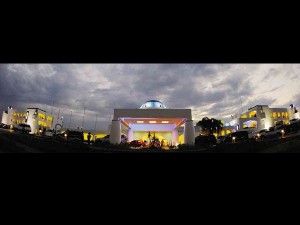
But then came the Baguio Flower Festival, or Panagbenga in 1995, which changed the rules by becoming the first secular fiesta, after Bacolod’s popular Masskara, during the month of February.
Occurring simultaneously in February is the Hot Air Balloon Fiesta, which has grown to become Clark Freeport’s most marketable attraction. It had to be transferred to the Omni Aviation Complex to accommodate more balloons and the world-famous Breitling Jet Team.
The Bases Conversion and Development Authority (BCDA) conceptualized the two events simultaneously as a corporate come-on to draw tourists and investors to the Camp John Hay Special Economic Zone in Baguio City and Clark in Pampanga, which it administers.
In 2012, BCDA continued to serve as fiesta maker by introducing the Sillag Festival, held every March, to drum up interest in the Poro Point Freeport Zone (PPFZ) here.
“Sillag is not merely the new tourist attraction in the Ilocos region. More importantly, it showcases the PPFZ as a premier tourist destination and investment hub,” says BCDA president Arnel Paciano Casanova.

A COUPLE whoops it up at the iconic lighthouse in Poro Point. PHOTO BY EV ESPIRITU/INQUIRER NORTHERN LUZON
Sillag is an Ilocano word that roughly translates to moonlight. It also refers to the historic Poro Point lighthouse, which Florante Gerdan, Poro Point Management Corp. (PPMC) president, says is an “integral component of the tourism development inside the PPFZ.”
“The freeport has yet to reach its full potential as it has yet to maximize the presence of both seaport and airport in attracting investments and generating tourists,” says Casanova.
Gerdan says Poro Point is the “ideal springboard to Southeast Asia’s major markets.” He cited its proximity to Hong Kong, Vietnam, Singapore, Malaysia, Thailand, Indonesia, Taipei, Japan and Korea.
Plans are now being drawn up for the freeport, beginning with the development of the Poro Point International Airport and the lighthouse area, Casanova says.
PPMC will also establish an information technology park and other industrial zones within the 146-hectare freeport.
Casanova says upgrading the San Fernando Airport will raise air traffic and make it a more suitable venue for cross-country training flights among flying schools here and abroad.
“Further upgrades to the San Fernando Airport will eventually transform it into an international travel facility,” he says.
BCDA will also bid out the master development plan (MDP) for PPFZ.
“The primary objective of the P8-million project is to produce a new master development plan for the freeport that will increase its marketability and viability,” Casanova says.
The freeport has two infrastructure jewels: The San Fernando International Seaport and the San Fernando Airport. Poro Point has a 6-hectare lighthouse property that serves as a vital component of an integrated tourism complex, he explains.

